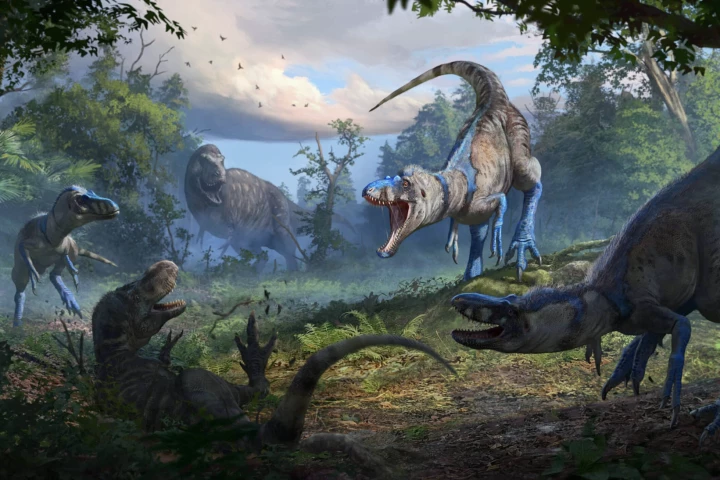Evolution
-
We generally associate the origins of mathematical thinking with the emergence of writing but a new study challenges this assumption looking at floral designs found on the pottery sherds across northern Mesopotamia, dating back 8000 years.
-
New research has found when plant leaves physically touch each other, they seem to form a biological signalling network to warn each other about upcoming stress. This boosts resilience to intense light, a common environmental challenge.
-
Shanghai robotics startup DroidUp has launched what it calls "a beautifully designed and expressive bionic robot" that is touted as "the world's first highly bionic robot that deeply integrates human aesthetics and advanced humanoid movement."
-
For the first time, we know more than we ever expected to know about the sex lives of the majestic beluga whale. It's complicated, to say the least, but it also shows just how strategic nature is at keeping an isolated group of animals alive.
-
A new study reveals jellyfish not only sleep but do so for the same portion of their day as humans, spending about one-third of the day sleeping. The findings also suggest that sleep evolved way before the brain to help maintain cells under stress.
-
For more than a century, biologists assumed that the bony plates found in the skin of lizards – nature's chain mail – were an ancient feature that some lineages inherited and others later lost. But new evidence suggests this is entirely wrong.
-
When COVID-19 lockdowns emptied city streets, urban environments changed almost overnight. New research suggests that Los Angeles city birds responded just as quickly, with measurable shifts in beak shape in offspring born during the lockdown period.
-
A 26-ft deep excavation in Indonesia has revealed that humans and a hominin species that pre-dates humans used the same cave. The enticing possibility even exists that both species overlapped, sharing the space at the same time.
-
Americans are being urged to be extra vigilant, as a new influenza A variant is spreading more rapidly and evading our abilities to fight it off. With more than 110,000 hospitalizations so far, scientists expect this wave to worsen as the season peaks.
-
Once thought an exclusive human skill, the ability to make fire on demand has long been seen as a turning point in our evolutionary story. But new research suggests Neanderthals also mastered fire-making hundreds of thousands of years before Homo sapiens.
-
It's that time of year – and my personal favorite corner of science to look back on – when we recap the many fascinating discoveries in the plant and animal kingdom in 2025. Orcas have again made news, but no luxury yachts were hurt in the process.
-
Dinosaurs may be long extinct, but 2025 made it clear that they’re anything but settled science. New fossils, reanalyses of famous specimens and increasingly sophisticated tools have helped us learn more about how they lived, moved, fed and evolved.
Load More











